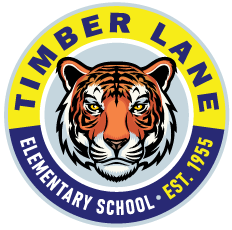School Innovation & Improvement Plan
2024-2025 School Year
Reading Goal
Outcome: Students reading on grade level by the end of 3rd Grade.
Goal:
- By Spring 2025, the percent of multilingual learners in grades 1-3 demonstrating progress in language acquisition will increase by 11 percentage points, as measured by the WIDA, from 39% to 50%
- The percentage of students in grades K-2 in the “high-risk” band on VALLSS will decrease by 10 percentage points from fall 2024 to spring 2025.
The percentage of students in grades 3-6 meeting or exceeding the iReady screener benchmarks will increase by 10 percentage points from fall 2024 to spring 2025.
- Expand access to evidence-based tier 1 instruction as well as intervention for students demonstrating risk in a multi-tiered system of supports.
- Increase intentional use of scaffolds, supports and extensions in whole group settings (word recognition, language comprehension and writing).
- Increase use of WIDA tools and rubrics to support language development.
Mathematics Goal
Outcome: Growth and performance on state/national/international assessments in math.
Goal:
- By spring 2025, the percentage of multilingual learners & students with disabilities who pass the grades 3 through 6 math SOLs will increase by 5 percentage points.
By spring of 2025, the percentage of students who pass the math SOL in grades 3-6 will increase by at least 5 percentage points.
- Improve teachers’ implementation of Framework for Engaging & Student-Centered Mathematics Instruction.
- Increase teachers implementation strategies related to Shift 8: from looking for correct answers towards revealing student thinking.
- Increase teacher implementation of explicit instruction and other components of effective mathematics intervention.
Academic Growth & Excellence Goal
Outcome: Growth and performance on state/national/international assessments in science
Goal: By spring of 2025, unadjusted Science SOL scores will increase to at least 65%.
- Increase opportunities for students to develop and apply disciplinary literacy skills of reading, writing, critical thinking, and discourse across content areas. This will be monitored during weekly grade level CLTs, interdisciplinary CLTs, leadership meetings and weekly coaches' meetings.
- Expand the type and frequency of formative and summative assessments to evaluate progress throughout units.
- Expand opportunities to meaningfully integrate science in and across content areas to include literacy skills, mathematical skills, and global context.

